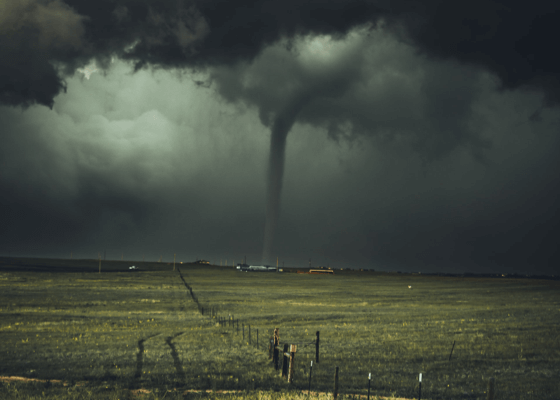This is, pure and simple, a lesson in flexibility and adaptation.
All too often I see new marketers who KNOW what their customers want and KNOW how to best market that product to them.
And these are almost always the marketers who fall flat on their face because no one can tell them anything different – not even their customers.
Once upon a time there was a retailer called “Sound of Music” that sold stereo equipment using commissioned salespeople. They did well enough for over a decade before a tornado ripped through their store on June 14, 1981.
The roof was sheared off, the showroom was destroyed, and turntables, speakers and stereos were strewn all over the parking lot.
But miraculously, the storeroom survived intact.
Within hours all 65 Sound of Music employees were on the scene, cleaning and salvaging items that could be sold as-is at reduced prices.
The store owner, Richard Schulze, decided to do what any good entrepreneur would do in this situation – sell what he could from a trailer in the parking lot.
They set up all the salvaged items that were still working, along with open box items, overstock items and anything that could be marked down.
They advertised the Tornado Sale as the place to get the “Best Buy”, and they sold out of stuff in just one day.
Here’s the kicker: Richard Schulze observed the customers as they moved through the temporary store and he realized that customers…
…weren’t concerned with the brand names…
…liked the no pressure style of shopping…
…enjoyed picking up the merchandise and handling it themselves…
…loved the “best buy” prices.
What did Richard do with this new knowledge?
First, he brought out more merchandise from the warehouse and staged a second Tornado Sale, making more money in 4 days than the store usually made in a month.
Second, he changed the name of the business from “Sound of Music” to “Best Buy.”
Third, he did away with commissioned salespeople to create a no-pressure sales environment.
Fourth, he placed all merchandise on the sales floor so customers could touch the items.
These changes grew the business from one store to a mega chain of stores all over the world.
Here’s the lesson: Your customers will tell you what they want to buy and how they want to buy it if you will only pay attention.
I know all too well how easy it is to fall into the trap of thinking you have the perfect product, the perfect sales process and delivery system and so forth.
But until you get actual customer input, odds are you’re not doing it right.
Let’s say you’ve got a course that selling okay. Ask the people who took the course what changes they would have liked. Did you miss something important? Would they prefer less writing and more videos? Or would video transcripts have helped? What problems did they have implementing the information? How are they using what they learned?
These are just a few of the questions you can ask them.
Get them on a call and see what they have to teach you. You’ll be amazed. And if you’re wise enough to implement the best suggestions, you should see your sales soar, too.
